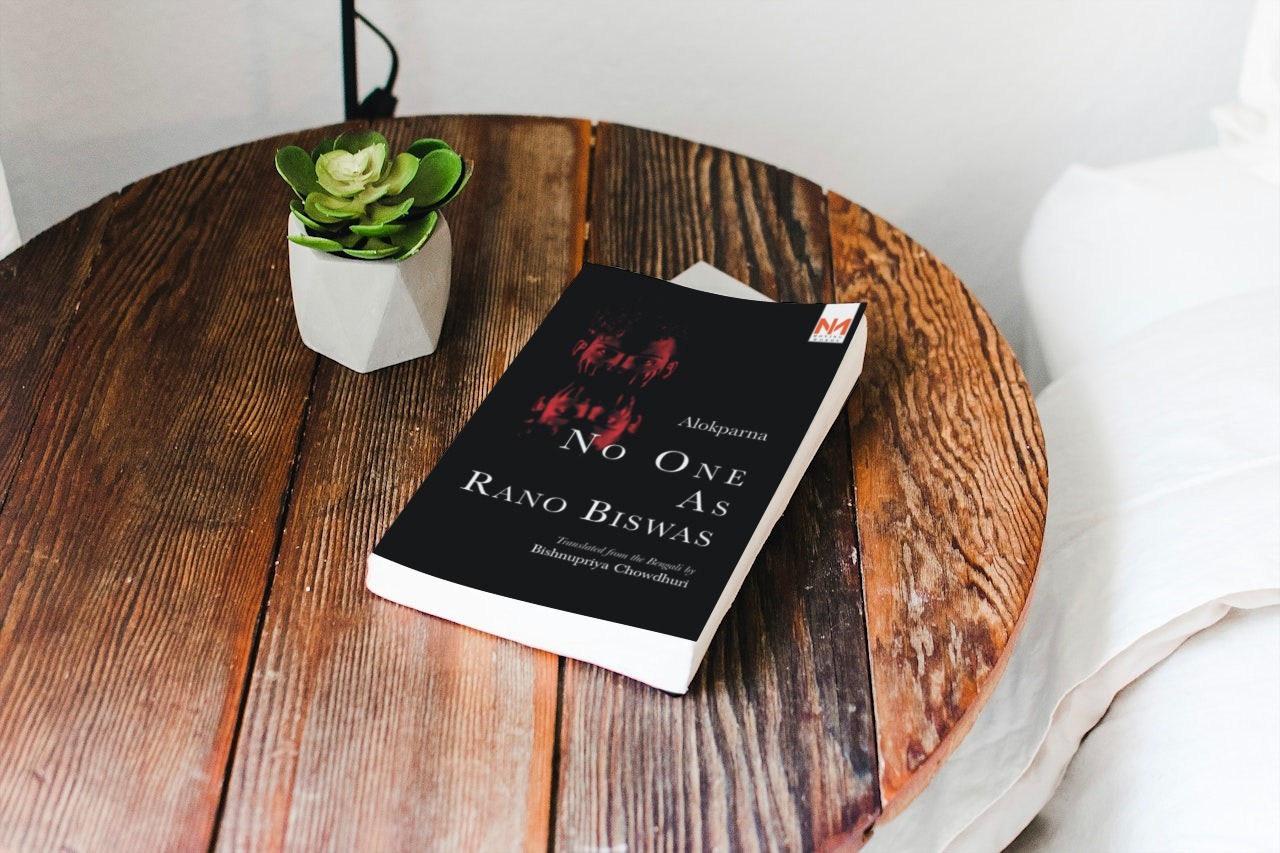A BOOK REVIEW BY YASHODHARA GUPTA
“Then do you need to stay lonely a bit more?
Do you need another slice of darkness?
At this very moment, you raised your eyes from the pages of the book to look at your life.”
No One As Rano Biswas is a rather unique piece of writing. It reads a little like a video-game narration in that the authorship is persistent in trying to engage with the active senses of the reader. The book, I believe, aims to be as much of an immersive experience as it seeks to evoke literary sensibility.
Voiced by a teenage boy and populated by the turbulent thoughts of a young man coming to terms with personhood, violence, and sexuality, the book often tips the reader into a frustratingly jagged world; parental conflict comes into collision with sexual awakenings while a fascination with death rests upon the shoulders of a refuge beyond said parental conflict. Friendships are fickle and thoughts seem claustrophobic. The construction speaks to the writer’s conception of a young troubled mind, allowing commentary upon how isolation functions in a child branded ‘unwanted’ from his time of birth. This idea of construction permeates into the very soul of the book. That Rano Biswas is an idea, a construct in itself, is brought into the reader’s horizon all too often. The self, pieced together by vignettes of fractured mundanity, leads us ultimately to a rather confused landscape. The boy speaks to himself and questions what this self even means. The name Jagannath appears rather frequently, befuddling the reader’s understanding of who the real speaker is, and how he is removed from the real actor of the events spoken of. At points, Rano Biswas seems lost to the fractured fourth wall. While this might be a conscious choice on the part of Alokparna, it does make for a rather unemotional narrative and a protagonist whose position remains limited to a static raiser of questions. One might argue that this is a conscious choice on part of the writer in her effort to elucidate the psyche of a confused young boy. This consolation though, is dismantled by the narrator’s constant interjections about why the reader continues to read. Assumptions run heavy, often at the cost of nullifying the reader’s individual experience.
Towards the end of the first section of the book, Rano Biswas claims to have gained our trust. A few pages later, he attempts to craft a community of lonesome hearts. The problem with this hyper-aware narrator, though, lies in an overt relatability that prevents Rano Biswas, the figure, from coming into his own.
But then again, this is a book that calls itself No One As Rano Biswas. We must remind ourselves of what the book declares rather honestly: that Rano Biswas is a proposition, an idea that seeks to lead us on a journey of contemplation.
What then, does Rano Biswas stand for? And more importantly, what does he have to say?
The most interesting element of the narrative lies in its sharp gaze toward the habitual prejudices that plague our daily lives. Homophobia and female sexualization are taken head-on, while domestic violence, consent, and desire are contemplated. Rano Biswas seems almost pedagogic in asking us to think against him, to argue against the world he inhabits, to grasp for the warmth he lacks. He stands to criticize the many ways in which society fails a growing heart.
Isolation lies at the heart of Rano Biswas’ cynicism. He is detached from the space he inhabits, told continually that it has no place for him. He lives, therefore, in a constant state of hunt. He trusts no one, not even himself. Do we trust him then? The answer, I suppose, ends up in the negative. But he presents a pressing discourse. We question why Rano Biswas needed to exist, why he felt the urge to speak, and how a figure such as him may rise out of the world we live in today.
The story is a layered contemplation of power and sexuality.
Here is this figure completely bereft of power, and a world of patriarchal imposition waiting to be wielded. Violence is harsh and abrupt, while emotions tread murky ground. Male power in Alokparna’s writing, is exerted in guns and penile erection, and by the end of the book Rano Biswas grows into a ‘man’ and a murderer by learning to wield these very objects.
There is no poetic justice, in the greying world of Rano Biswas. There is, in fact, no ending at all. Rano Biswas has merely been unleashed into a world of prey, while a curtain of discreet horror has been raised for the reader to peek into how he came to be in the first place. It is unsettling, unnerving even. Rano Biswas manages, in his goodbyes, to leave us with a lingering sense of terror.
The translation of the original Bengali text manages to keep its regional specificity intact. The colloquialisms of ‘dada’ and ‘mashi’ are not lost in the English version, and the text fits seamlessly into the vocabulary the English language brings.
No One As Rano Biswas is truly a book like no other. It is a speaker by itself, a communicator of societal truths. If it is slightly abrupt in places, it makes up for it in heart. This is a work of fiction that challenges all our preconceived suppositions, daring us to look into our own little worlds and recognize where we, as a race, may be going wrong. It is a rather polarizing read, but I must admit, I’m yet to chance upon a similar world in any other venture of the Bengali literati.
Also, read Book Excerpt from No One as Rano Biswas by Alokparna, translated from The Bengali by Bishnupriya Chowdhuri and Published in The Antonym:



























0 Comments